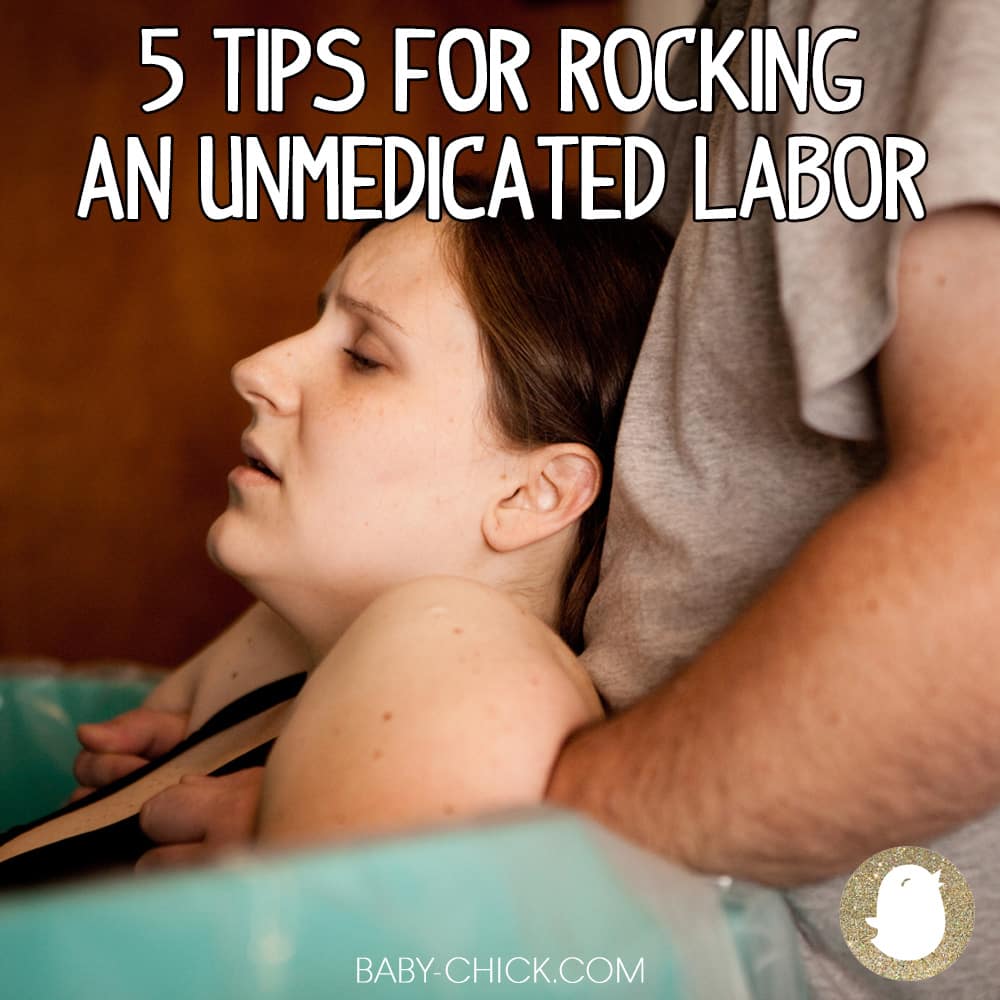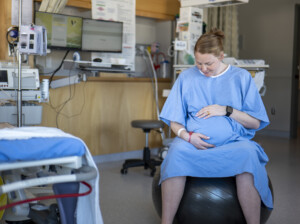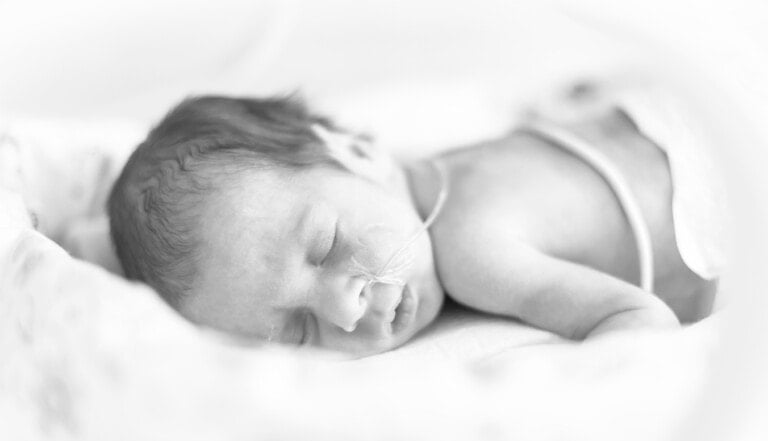Natural, unmedicated labor and delivery is becoming a common choice for pregnant women. Women are seeking a more peaceful birthing experience without unnecessary medical interventions and in a more comfortable environment. While a natural, unmedicated labor may not be for everyone, it is undoubtedly an amazing experience for a healthy, low-risk pregnant woman. So whether you choose to have your unmedicated labor and delivery in the hospital, at a birth center, or home, here are some ways you can get ready to rock your birth!
How to Have a Successful Unmedicated Labor and Birth
1. Prepare Mentally
A lot will happen during labor and delivery that is going to FREAK. YOU. OUT. if you don’t prepare for it mentally. Research as much as you can about natural labor and delivery.1 This helps to have a general idea of what is happening with your body and baby. But also, take a good birth class. There are so many methods out there. The Bradley Method, Hypnobabies, and Lamaze are some of the most popular.
My husband and I took the Bradley Method class. It was incredibly informative. Not only for the actual labor and delivery part of becoming parents, but it also opened our eyes to all the decisions we would have to make immediately upon having the baby (vitamin K? vaccines? PKU? circumcision?). The more you know about what happens during and after labor, the less you fear or worry about when the time comes.
2. Hire a Doula
This is especially true for first-time moms. Your partner may be a great birth coach, but they will be just as nervous and excited as you are. They will also see the love of their life suffering some intense pain (and there’s nothing they can do to “fix it”), and they may not handle it as well as they think they might. Hiring a doula will allow both your partner and yourself to focus on the task at hand, as she can coach you through each stage of labor.
Hiring a doula was the best thing I did to prepare for my first birth, and as it happens, my doula was the person first to recognize the symptoms of postpartum depression in me. She was with me during labor and kept in contact with me post-delivery. Trust me, hiring a doula is worth every penny.
3. Write Out Your Birth Plan
Write (or type) out your birth plan and make multiple copies. Put copies in your hospital bag (or birth center bag), and make sure your doctor and nurses get a copy when you check-in. You must be very clear about what you want to happen if certain circumstances occur. For instance, when I wrote my birth plan, I outlined in detail what I wanted to happen or not happen in the event of a vaginal birth (delayed cord clamping, immediate skin-to-skin, no vitamin K).
I then outlined what I wanted to happen/not happen in the event of a c-section (one arm to remain free, delayed cord clamping, immediate skin-to-skin with my husband, no bath immediately after birth, no formula). I wrote out all my preferences and decisions for each path my birth could take, including writing a birth plan for having a C-section. If, for whatever reason, I could not make my preferences known at the moment, everyone would know what I expected.
4. Know Your Limit
Listen, I know you are gung-ho about being a warrior mama and popping out this baby like the Wonder Woman you are, but there may come a time when you can’t take the pain anymore, and you decide to ask for meds. THIS IS OKAY. Trust me. I know how hard that place can be because I was there. I labored (unmedicated) for over 40 HOURS with my first baby. Despite our best efforts to move things along, I was stuck at 7 centimeters for many of those hours. During those hours, I did not sleep, barely ate, and was in great pain. I was beyond exhausted, and my body was starting to wear out.
Despite my stubborn instinct to press on with my unmedicated labor, I decided to be transported to the hospital for an epidural so I could, at the very least, rest before continuing. It was a very tough call for me to make, and to be honest, I felt like a massive failure about it for a long time after my daughter was born. But, in hindsight, I know I made the right call because I did what I needed to do to get my child here safe and healthy and keep myself safe and healthy. In the end, that’s what matters.
5. Consider a Water Birth
Laboring (and delivering, if you choose) in water is one of the most effective ways to manage labor pain naturally. Not only does it help with the pain, but laboring and birthing in water can also help speed up labor, reduce perineal trauma, and be a gentler welcome for baby. I labored in water for both pregnancies, which was key in helping me deal with the pain. Also, I delivered my son in the water, and it is an experience I will never forget! I highly encourage you to look into a water birth for your natural labor, which can significantly help manage the pain.
Choosing how and where to give birth is a big decision you should not take lightly. I encourage you to research if considering natural, unmedicated labor and delivery. You can learn to manage pain in many ways, and, for many women, the experience is so powerfully affirming and sacred. If this is your chosen path, prepare yourself and your spouse for what lies ahead, and then hang on for the ride!















